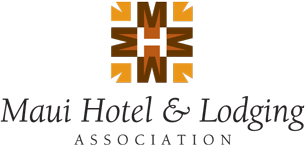The Art of Surfing, Then and Now
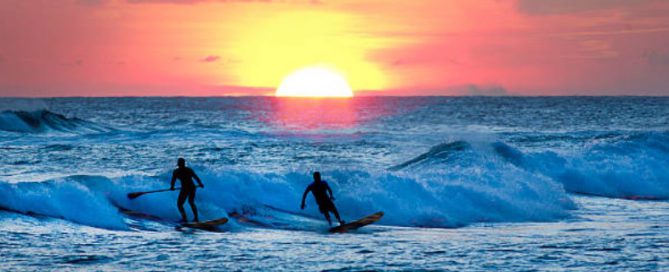
Long before Polynesians voyaged to Hawaii, surfing was a central part of their culture. By the time of European contact in 1789, the art of surfing, known as heʻe ʻana, had long been a celebrated sport of Kings, and served as a training activity for warriors.
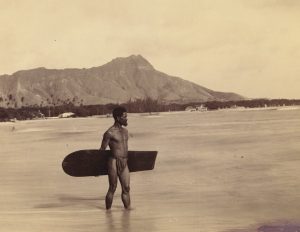 The ruling class, or Ali’i, and connected ohana, had use of the best beaches and the best boards. However, surfing was enjoyed by men, women and children of all social classes. Stories about the mythical Maui Princess Kelea describe her as one of the best surfers in the Hawaiian kingdom. The demi-god Mamala is depicted as a half-woman, half-shark who rode the waves. Community members in the kingdom of Hawaii had an opportunity to gain prestige by refining their ability to ride the surf on their boards.
Warriors often paddled to surf breaks, going head-on into large surf and riding waves. Canoes frequently would accompany surfing parties and the men would often swap between canoeing and paddling boards, and then catch fish after their recreational activities. In Hawai'i, surfing became ingrained into the very fabric of Hawaiian religion and culture.
[caption id="attachment_969" align="alignleft" width="300"]
The ruling class, or Ali’i, and connected ohana, had use of the best beaches and the best boards. However, surfing was enjoyed by men, women and children of all social classes. Stories about the mythical Maui Princess Kelea describe her as one of the best surfers in the Hawaiian kingdom. The demi-god Mamala is depicted as a half-woman, half-shark who rode the waves. Community members in the kingdom of Hawaii had an opportunity to gain prestige by refining their ability to ride the surf on their boards.
Warriors often paddled to surf breaks, going head-on into large surf and riding waves. Canoes frequently would accompany surfing parties and the men would often swap between canoeing and paddling boards, and then catch fish after their recreational activities. In Hawai'i, surfing became ingrained into the very fabric of Hawaiian religion and culture.
[caption id="attachment_969" align="alignleft" width="300"]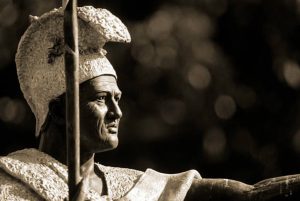 King Kamehameha I Ruler of Hawaii 1782 -1819[/caption]
The ancient Hawaiian people did not consider surfing a mere recreational activity or extreme sport as it is viewed today. Rather, the Hawaiian people integrated surfing into their culture and made surfing more of an art than anything else. They referred to this practice as heʻe nalu which translates into English as "wave sliding."
Giving reverence to the Sea
The practice of surfing began before entering the ocean as the Hawaiians prayed to the Gods for protection and strength to undertake the powerful mystifying ocean. If the ocean was tamed, frustrated surfers would call upon ancestors who would aid them in a surfing prayer asking the gods to deliver great surf.
King Kamehameha I Ruler of Hawaii 1782 -1819[/caption]
The ancient Hawaiian people did not consider surfing a mere recreational activity or extreme sport as it is viewed today. Rather, the Hawaiian people integrated surfing into their culture and made surfing more of an art than anything else. They referred to this practice as heʻe nalu which translates into English as "wave sliding."
Giving reverence to the Sea
The practice of surfing began before entering the ocean as the Hawaiians prayed to the Gods for protection and strength to undertake the powerful mystifying ocean. If the ocean was tamed, frustrated surfers would call upon ancestors who would aid them in a surfing prayer asking the gods to deliver great surf.
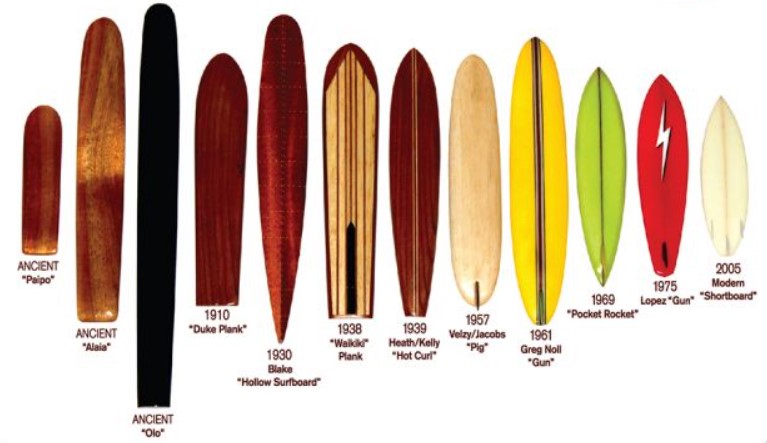 The act of creating a surfboard was another spiritual journey.
Hawaiians would carefully select from one of three types of trees- koa, ʻulu or wiliwili. Once selected, the surfer would dig the tree out and place fish in the hole as an offering to
the gods. Selected craftsmen of the community were then hired to shape, stain, and prepare the board for the surfer. There were three primary shapes: the ʻolo, kikoʻo, and the alaia. The ʻolo is thick in the middle and gradually gets thinner towards the edges. The kikoʻo ranges in length from 12 to 18 ft and requires great skill to maneuver. The alaia board is around 9 ft long and requires great skill to ride and master.
[caption id="attachment_960" align="alignleft" width="284"]
The act of creating a surfboard was another spiritual journey.
Hawaiians would carefully select from one of three types of trees- koa, ʻulu or wiliwili. Once selected, the surfer would dig the tree out and place fish in the hole as an offering to
the gods. Selected craftsmen of the community were then hired to shape, stain, and prepare the board for the surfer. There were three primary shapes: the ʻolo, kikoʻo, and the alaia. The ʻolo is thick in the middle and gradually gets thinner towards the edges. The kikoʻo ranges in length from 12 to 18 ft and requires great skill to maneuver. The alaia board is around 9 ft long and requires great skill to ride and master.
[caption id="attachment_960" align="alignleft" width="284"]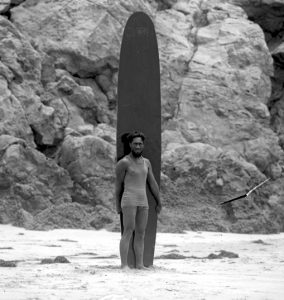 Duke Kahanamoku[/caption]
Though not a royal, surfers that proved their exceptional skill, like native Hawaiian Duke Kahanamoku, helped popularize surfing. He was born towards the end of the Kingdom of Hawaii, just before the overthrow, living into statehood as a United States citizen. He was also a proficient swimmer, bringing home five Olympic medals for the U.S.
Today, many aware surfers on Maui still give respect before entering the water, for protection and strength, and also for good waves!
Take a surf lesson on Maui
Duke Kahanamoku[/caption]
Though not a royal, surfers that proved their exceptional skill, like native Hawaiian Duke Kahanamoku, helped popularize surfing. He was born towards the end of the Kingdom of Hawaii, just before the overthrow, living into statehood as a United States citizen. He was also a proficient swimmer, bringing home five Olympic medals for the U.S.
Today, many aware surfers on Maui still give respect before entering the water, for protection and strength, and also for good waves!
Take a surf lesson on Maui
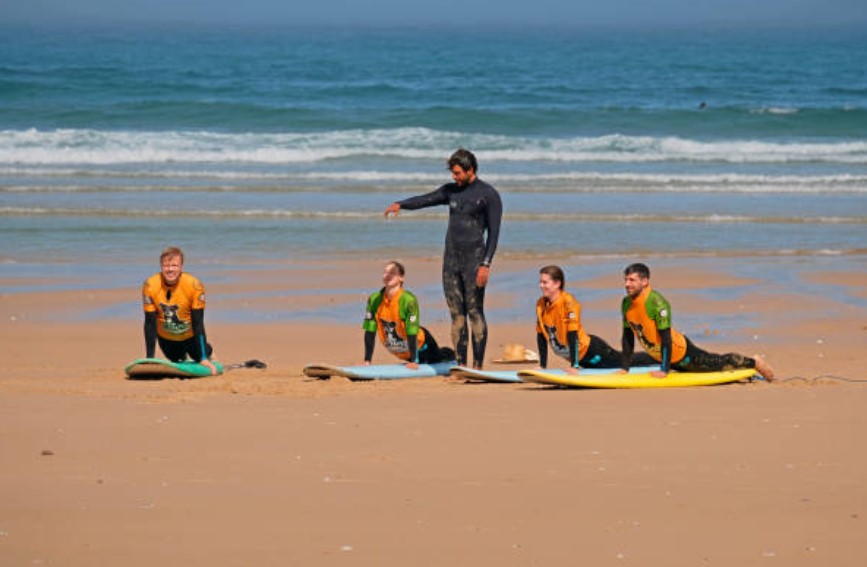 Find that deeper connection to the ocean, and take a surf lesson while on Maui. It's not just a bucket list item, surfing is something many find transformational. And you will be in good company with Maui surfing legends and the spirit of Ali'i.
Here are a few surf schools to review to find a fit that is right for you.
Find that deeper connection to the ocean, and take a surf lesson while on Maui. It's not just a bucket list item, surfing is something many find transformational. And you will be in good company with Maui surfing legends and the spirit of Ali'i.
Here are a few surf schools to review to find a fit that is right for you.
West Maui Surf Lessons
Hang Loose Surf Club (808) 633-5166 Surf School, Surfing Maui Surf Clinics (808) 244-7873 Surf School, Surfing, Paddleboarding Maui Surfer Girls (808) 214-0606 Surf School, Surfing Maui Waveriders- Lahaina (808) 661-0003 Surf School, Surfing, Paddleboarding Royal Hawaiian Surf Academy (808) 276-7873 Surfing, Surf School, Paddleboarding Stant Surfing Lessons (808) 344-8925 Surf School, Surfing Swell Maui Surf Lessons (844) 817-5706 Surf School, SurfingSouth Maui Surfing Lessons
Maui Waveriders Kihei (808) 875-4761 Surf School, Surfing, Paddleboarding Surf Club Maui (808) 283-7913 Kiteboarding, Paddleboarding, Surfing Waves Hawaii Surf School (808) 879-4525 Surfing, Surf School, Paddleboarding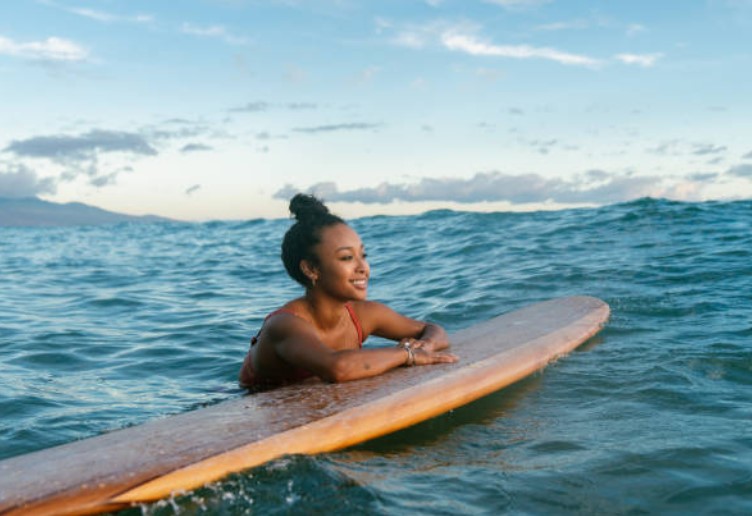
May 18th, 2021 | Beach, Culture, Entertainment, Environment, Ocean



